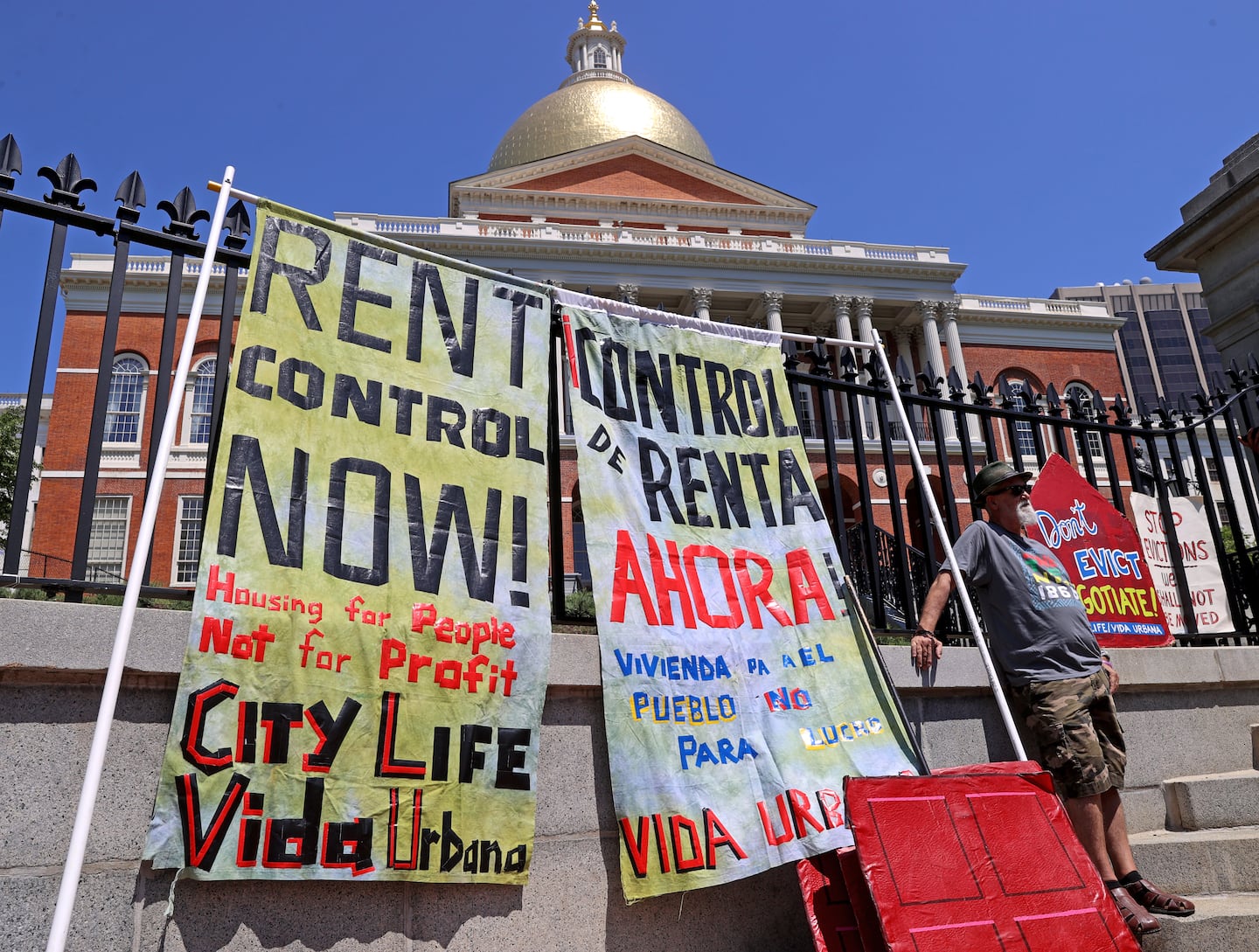Now the industry faces a challenge on a new front, the ballot box, after housing advocates Wednesday filed a petition to put rent caps on the ballot in November 2026.
It’s a long road to Election Day, and many proposed ballot initiatives fail to qualify and make it to voters. Nonetheless, real estate industry representatives said they are alarmed by the proposal and are prepared to spend heavily to fight it.
“It’s such a punitive form of rent control, it almost exudes the frustration of tenants and tenant advocates with the real estate industry. . . . It reads like it is designed to punish corporations and landlords,” said Greg Vasil, chief executive of the Greater Boston Real Estate Board. “But this would be a disaster for Massachusetts. We will absolutely campaign against it.”
The measure filed by tenant advocate coalition Homes For All Massachusetts would limit annual rent increases for most apartments to a federal inflation index, with a hard cap of 5 percent. It would exclude buildings with four units or fewer and new development for 10 years after opening.
If approved by voters, it would be one of the tightest rent control policies in the country, significantly tighter than most other modern “rent stabilization” policies like the one proposed two years ago by Boston Mayor Michelle Wu — which real estate interests fought fiercely.
Developers and landlords despise rent control because, they say, it cuts into the bottom line of a building and makes it difficult for property owners to make enough money to maintain their buildings and keep up with inflation.

“I understand the sentiment that it takes a while to build more housing, which is what will bring down rents,” said Amir Shahsavari, vice president of landlord group the Small Property Owners Association. “But rent control as an emergency provision is counterproductive because it stunts the growth of new housing supply.”
While the proposal has carve-outs for the smallest landlords, it would still reduce revenues for those who own 5 or 10 units, Shahsavari said, at a time when property taxes, inflation, and new climate regulations have made owning apartments ever more expensive. He said the proposal lumps small landlords in with multinational corporations that own tens of thousands of units.
Real estate groups also argue that rent control stifles new development, because it can reduce the cash flow of apartment buildings and discourage investors who typically finance construction projects.
Tamara Small, chief executive of industry group NAIOP Massachusetts, said she’s already heard from developers concerned that even the prospect of a rent control ballot question would scare away investors.
“It’s a terrible policy,” Small said. “When you mention the words ‘rent control,’ the investors who fund housing development are out of that market.”
But tenant advocates argue the housing crisis has reached such acute levels that they have no choice but to ask voters to intervene because the real estate industry has such a chokehold on the Legislature.
“The people of Massachusetts are fed up with a housing market where corporate real estate investors can buy your homes and hike the rent by hundreds of dollars,” Isaac Simon Hodes, executive director of Lynn United for Change, said in a statement. “That’s why we’re organizing to pass rent stabilization on the ballot.”
Moreover, advocates appear more organized than they were a few years ago, when Representative Mike Connolly filed, and later withdrew, a rent control ballot measure that some prominent tenant groups opposed. But ballot initiatives are expensive, and advocates will be hard pressed to outspend deep-pocketed developers; powerful unions and other progressive groups that have in the past backed tenant protections were notably absent from the announcement of the ballot petition by Homes For All on Wednesday.
On Beacon Hill, the real estate industry holds considerable influence. It is one of the top donors and lobbying presences in the State House each year and has successfully defeated policies favored by tenant advocates, including rent control, on numerous occasions.
Last year, for example, the industry defeated a proposed tax on high-dollar real estate transactions to fund affordable housing. The industry also organized against Wu’s rent control proposal in 2023, and back in 1994, helped fund the ballot initiative that outlawed rent control.
And now, once again, they’re gearing up for a fight. Vasil said developers were alarmed at how low the cap on rent increases would be in the proposal from tenant advocates. The lower the cap, he said, the greater the hit to landlords’ bottom line. But he also said it will be “a great opportunity for” the real estate industry.
“The policy is so extreme, so punitive, I would expect the industry to have a very emphatic response,” Vasil said.
Andrew Brinker can be reached at andrew.brinker@globe.com. Follow him @andrewnbrinker.

